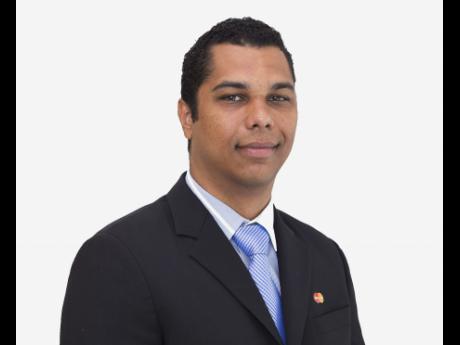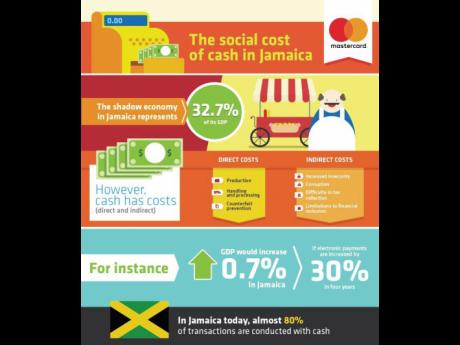Cash payments hinder economic growth, reveals Mastercard study
By using cash to pay for goods and services, Jamaicans are hindering the economy's potential to grow, according to leading global payments and technology company, Mastercard.
Almost 80 per cent of all transactions conducted in Jamaica are done using cash. In a study done by Mastercard, the data revealed that the use of cash slows the country's economic growth by stimulating informality, increasing corruption, and limiting financial inclusion.
The study further showed that the country's economy can grow by 0.7 per cent if Jamaicans increased electronic payments by 30 per cent in a four-year period.
Even though Jamaica fares better than Trinidad and Tobago, where almost 90 per cent of transactions are conducted using cash, vice-president of marketing and communications for the Caribbean at MasterCard, Luis Araujo, said financial education could steer Jamaica on the right path to increased growth.
VALUE IN USING CARDS
"One dimension is making people aware and seeing the value of using electronic payments over cash," Araujo told The Gleaner on Wednesday during Mastercard's media day in Miami, Florida.
"There is the idea that 'I don't need it because I just have cash', so they don't see it as necessary, but when we start talking to them about the convenience of not carrying cash or the financial control that you can have by registering all your transactions, or access to credit, that can change the perception."
Araujo argued that with the digitisation of transactions, cash payments will eventually become obsolete, and the sooner countries latch on to this concept, the better.
Country manager for the English and Dutch Caribbean, Ray Merceron, lauded Jamaica for employing the latest technologies and moving with the times, such as quickly introducing chip cards.
"I would say by the end of 2019, we should be completely chipped in Jamaica. The fraudsters always go after the weakest link, so if 80 per cent of the market is chipped, that 20 per cent that's left is the most vulnerable, so they need to do the remaining work that's needed to push the fraud out completely," said Merceron.




